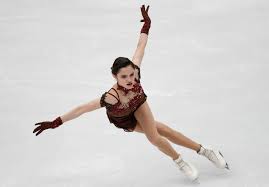When Olympic ice skaters take the rink, the world watches in awe. Their performances are fluid, graceful, and seemingly effortless blending athleticism and artistry in a way few sports can match. But behind every flawless triple axel or perfectly synchronized spin lies something invisible yet vital: a fierce, unrelenting mental game.
Beneath the glittering costumes and thunderous applause, figure skating at the Olympic level is a psychological battlefield. Skaters face not just physical risks, but the enormous pressure of perfection where a single misstep can erase years of preparation.
Precision Under Pressure
Olympic ice skating is a sport of millimeters and milliseconds. A small hesitation, a slightly misjudged takeoff, or a momentary lapse in focus can lead to falls, deductions, or devastating disappointment. And with scoring systems that reward both technical difficulty and artistic interpretation, skaters must execute complex jumps while simultaneously conveying emotion, elegance, and story.
That delicate balance demands not just practice, but deep mental conditioning.
The Hidden Demands of the Sport
While fans see the final 4-minute program, they don’t see the intense psychological challenges skaters endure:
- Public Scrutiny: Unlike many other sports, figure skating is deeply subjective. Judges critique every gesture, posture, and expression not just the jumps.
- High Stakes: Olympic performances often define careers. Many skaters only get one shot on the world’s biggest stage.
- Solo Spotlight: There’s nowhere to hide on the ice. Every move is witnessed by millions. That level of exposure intensifies pressure exponentially.
Mental Strategies of Olympic Skaters
To handle this intensity, elite skaters develop rigorous mental routines that are just as vital as their physical training. Here’s how they prepare their minds for Olympic glory:
1. Visualization and Mental Rehearsal
Olympic skaters often spend hours visualizing every second of their routine step by step, breath by breath. They mentally skate their program over and over, training their brain to anticipate and respond to every movement.
This mental rehearsal builds confidence and creates a sense of familiarity, reducing anxiety on the actual performance day.
2. Emotional Control
Nerves are inevitable. What separates champions from the rest is their ability to manage them. Skaters use techniques like controlled breathing, grounding exercises, and mental cues to calm the storm within. Some even practice entering high-stress simulations during training to desensitize themselves to pressure.
3. Positive Self-Talk
A skater’s internal dialogue can make or break a performance. Phrases like “You’ve got this,” “Breathe and glide,” or “Trust your training” become mantras that redirect fear into focus. Negative thoughts are consciously replaced with constructive ones.
4. Routine and Ritual
Many skaters have strict pre-performance rituals everything from listening to specific music, to repeating calming mantras, to warming up in a particular order. These routines ground them, offering psychological stability in unpredictable environments.
5. Resilience and Recovery
Even with perfect training, mistakes happen. The best skaters don’t let a stumble derail their program. They’ve trained themselves to mentally recover mid-performance, adapt quickly, and continue with grace an ability that often separates medalists from the rest.
Behind the Gold: A Mental Masterclass
Consider athletes like Yuzuru Hanyu, who won back-to-back Olympic gold medals despite injuries and the pressure of defending a title. His performances weren’t just about technical skill they were testaments to mental strength, emotional composure, and unshakeable focus.
Or Alina Zagitova, who at just 15 years old won Olympic gold while skating under immense media scrutiny. Her mental poise far exceeded her years, a result of relentless psychological preparation.
These athletes exemplify the mental toughness required not just to perform, but to thrive under the most intense pressure in sport.
What We Can Learn
The mental game of Olympic figure skating offers powerful lessons:
- Preparation must go beyond the physical.
- Pressure is inevitable, but how we respond is a choice.
- Success often comes down to the inner dialogue we carry into high-stakes moments.
In life as on the ice grace under pressure isn’t natural; it’s trained.
Ice, Nerves, and Steel
Olympic figure skating is often called one of the most beautiful sports in the world. But beauty doesn’t come easy. It’s forged through repetition, resilience, and remarkable mental control. The next time you see a skater land a quadruple jump or float across the ice with poise, remember: it’s not just talent. It’s the result of a secret, relentless mental game played long before the spotlight ever hits the ice.

